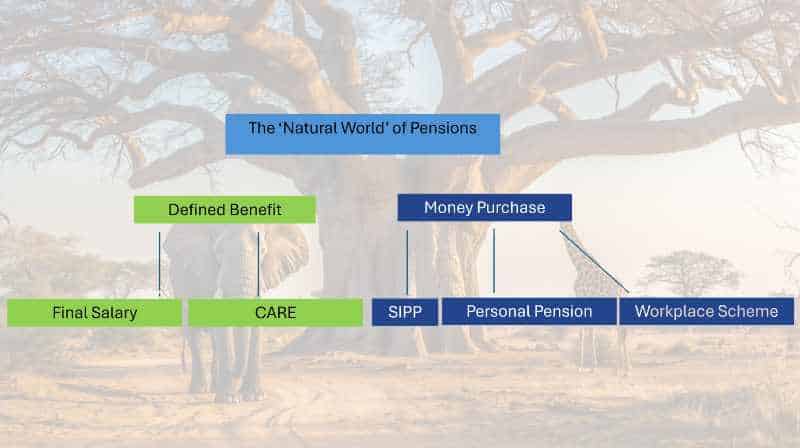
You might have heard about the latest investment acronym (because the financial services industry needs another one!), ESG investing.
ESG is short for Environmental, Social and Governance and has been growing in prominence over the past few years and particularly since the COVID fall out. The principle of ESG investing is aligning how your money is invested to your principles and values. In other words, investing with your heart and mind.
Used interchangeably with ‘Responsible Investing’, the common priority for many is to avoid companies that are harming the planet, but it also incorporates a broader view to include societal issues including how companies interact with their employees, local communities and stakeholders. The governance part considers how the board runs the company, its executive pay policies and ethics (think Enron!).
The Background
This approach to investing is not new; the first ethical fund was introduced in the 1970s by a group of US Methodists who did not want to financially support the Vietnam war. Historically, due to higher costs and fewer investment options, it has been a choice between doing well financially OR doing good. Fortunately, it is now possible to do well AND do good. There is an ever-increasing number of investment opportunities for those who do not want to profit at the expense of the planet or others without a cost premium attached to it.
Over the past few years, investment funds that have been managed with an ESG focus have performed well compared to non-ESG equivalents. Of course, we must be wary of extrapolating short-term historic returns over the long-term and some of the returns, particularly in 2020, can be attributed to riding on the tech rally whilst avoiding the large losses of the economic victims of COVID, particularly the airlines and oil majors.
There may be periods of time where non-ESG stocks perform better than ESG ones, but for the reasons mentioned below, there are compelling and logical reasons why this ESG outperformance can continue over time.
But Is It A Fad?
The financial services world is not short of examples of investment ‘opportunities’ dreamed up by marketing departments of fund houses to generate inflows of investors’ money. There are some who argue that ESG investing is the next fad, but contemporary evidence paints a different picture:
- Individuals such as David Attenborough and Greta Thunberg and protest groups such as Greenpeace, Extinction Rebellion, Reclaim the Streets and BLM are bringing these issues into our living rooms. As individuals and societies, we are aligning our purchasing habits to our values so that we can at least feel we are part of the solution rather than the problem.
- Governments are acting; Joe Biden has made the climate a key priority and one of his first acts as President was to re-join the Paris Climate Agreement. The Chinese government has declared its commitment to net-zero by 2060 and the EU, Japan and South Korea have all also made net zero commitments.
- Companies are beginning to understand that if they do not take action to address these issues it is a risk to their business models. This might be through lost markets, imposed regulatory costs, bad publicity or employee disenfranchisement.
- Furthermore, companies that are embracing change, either because they are traditional companies that are actively incorporating an ESG philosophy into their operations or because they are emerging companies at the vanguard of renewable technology, provide compelling potential as investment opportunities.
- In a meta-study of over 2000 research studies, 63% of findings attributed a positive correlation to ESG and greater equity returns.[1]
- Business schools such as Harvard and Chicago Booth, both bastions of free-market thinking, are now seeing that the traditional view that a company’s first and only priority is to generate returns for its shareholders is now outmoded. They understand that companies can increase shareholder returns when they consider the views and priorities of all stakeholders. As a result, they are now offering courses specifically on ESG.
- Financial regulation is being brought in that requires investment managers to make ESG a core part of their research process.
- Institutional investors are leading the way, with money flows into ESG investments outstripping those of non ESG investments. To give you two examples: BlackRock announced in a letter to its clients[2] it is embedding sustainability into its investment management processes on the “deeply held conviction that integrating sustainability helps investors build more resilient portfolios and achieve better long-term risk-adjusted returns.” Similarly, the world’s largest pension fund, the US$1.6trn Japanese Government Pension fund has, over the last 6 years, implemented an ESG focus and used its power and influence on Japanese companies to embrace ESG in their principles and practices[3].
ESG Is Not Perfect.
It is also important to be mindful of the fact that ESG investing is not perfect and there are many contradictories within it. Take Tesla and VW for example, Tesla is the darling of the stock market (it is worth more than GM & Ford combined) and leading the way in the move towards electric vehicles but the most carbon-intensive part of a car’s life is in the manufacturing. The carbon pay-off time is long and to produce the battery involves cobalt mining in the Democratic Republic of Congo, a country with a very questionable record on human rights. VW on the other hand was notoriously embroiled in the emissions scandal but scores very well on employee relationship measures.
Or what about Facebook that has a low carbon footprint and a diverse workforce but has built a business on opaque usage of user data, often for unethical purposes?
The other conundrum is whether you avoid companies with practices you don’t like so that you can feel like you are not killing polar bears, or can you be part of the solution by using your voting rights as a shareholder (usually via the fund manager) and forcing positive change from within?
However imperfect it might be, the world of ESG is evolving and maturing and as long as the climate emergency and other social issues remain on our collective consciousness demand for change will be led by investors, consumers and the voting population.
As with any form of investment the first decision you need to take is what you are trying to achieve with your money and how much investment risk you can afford to take. If, then, it is appropriate that you invest in global stock markets (and for many it is) doing so in a way that is beneficial to the planet and each other is now a valid option.
If you want to discuss whether ESG investing is appropriate for you click here.
[1] Gunnar Friede et al., “ESG and financial performance: Aggregated evidence from more than 2000 empirical studies,” Journal of Sustainable Finance & Investment, October 2015, Volume 5, Number 4, pp. 210–33; Deutsche Asset & Wealth Management Investment; McKinsey analysis
[2] Larry Fink’s 2021 Letter to CEOs
[3] From ‘Reimaging Capitalism, How Business Can Save the World’ Rebecca Henderson, Penguin Books






